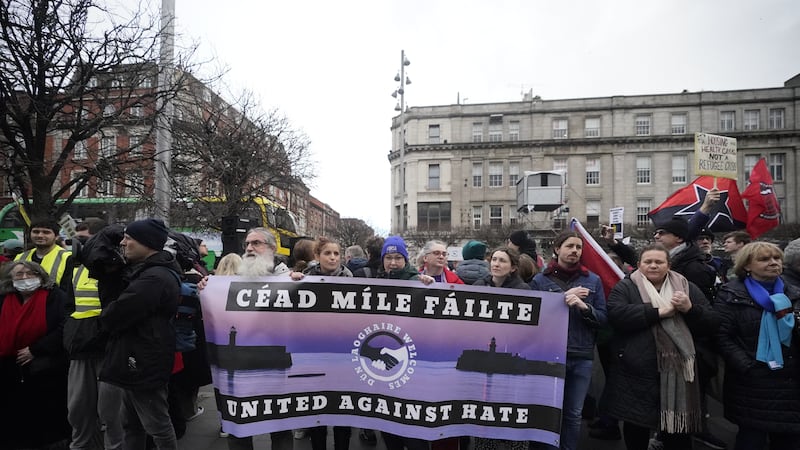State aid, not the sea border, is the government’s real concern in its deranged threat to rewrite the Brexit withdrawal agreement.
Northern Ireland is meant to stay within the EU’s business subsidy regime, whose rules would leak into Britain via firms that trade across the UK.
This ruins the government’s Brexit vision of subsiding world-class new industries.
The extraordinary bill presented to the Commons this week has been spun as protecting Northern Ireland’s place in the union, with ministers saying this is so important it justifies breaking international law. Yet the bill barely touches on removing checks and paperwork across the Irish Sea. Its focus is overwhelmingly on plugging the leak of state aid rules into Britain, which infers an even higher barrier.
The logical end point of this brinkmanship, assuming it is brinkmanship, is a minimal trade deal with a sea border that not only tracks customs and standards but also catches subsidised products to the EU’s satisfaction.
Imagine going to buy a Nissan on the Boucher Road, where the sticker price included a surcharge to offset any grants to the car factory in Sunderland.
**
Given the twists and turns of the past four years it is a little unkind to quote anyone’s predictions following the EU referendum. However, there is something special about the June 2016 remarks by Alastair Hamilton, then head of Invest NI, that Brexit would free Northern Ireland from the “challenges” of EU state aid rules.
At least Hamilton’s view was sincere. We have had four years of cynical claims that Brexit breaches the Good Friday Agreement, despite the courts pointing out early on this is untrue.
Now the Agreement has been profoundly damaged by the government blithely announcing it will break treaties at will.
**
With Brexit’s contradictions coming to a head, speculation is mounting on the future of DUP leader Arlene Foster. She has appeared to be at odds with her party over the past week by accepting the inevitability of the Withdrawal Agreement and her position is undoubtedly weakening. However, everyone in the DUP realises the sea border cannot be tackled by once again trusting the treacherous Tories, so Foster’s only sin is fatalism - not something to which Presbyterians can object.
While a dearth of suitable successors is widely seen as the main thing keeping the DUP leader in post, ambition is hardly rare among politicians and candidates will emerge once they feel the time is right. What is saving Foster for now is Brexit’s potential to get even worse for unionism. Why would anyone want to replace her before she can take the final fall for everything?
**
It is inevitable that people will question the coincidence of London appearing to risk a hard border after two weeks of arrests of alleged members of the New IRA, who reports accuse of planning Brexit-related “mayhem”.
In reality, an all-Ireland policing and intelligence operation of this nature will have been several years in the making and involved far too many individuals and factors to synchronise with Downing Street bluster, even if anyone was inclined to do so.
As if to prove Brexit politics sails right over its head, the PSNI held a media launch on Tuesday, right in the middle of the law-breaking bill farrago, for its “ANPR Intercept Team” - a new fleet of police cars equipped with automatic number plate recognition to target organised crime. It was lucky to avoid headlines about a hard border patrol.
**
Having worked flawlessly for months, Northern Ireland’s covid testing system has suddenly jammed up with bookings and even referring people to Stranraer or even farther afield. Some of this is due to UK-wide IT issues but the main problem is that the 6,000-test daily capacity was swamped when 350,000 children and 20,000 teachers went back to school, which does not seem like something that should have caught the executive by surprise.
**
Prominent lobby group the Committee for the Administration of Justice seems a bit put out by a routine refresh at the Northern Ireland Human Rights Commission.
The secretary of state has appointed five new members to the six-person commission at the end of their three-year contracts. CAJ merely “noted” this when ‘welcomed’ is the traditional greeting, with a rather sniffy press release adding: “CAJ hopes [the commissioners] will demonstrate their firm commitment to upholding international human rights standards”.
There is no criticism of the new appointees, nor could there be, for they are a balanced selection of well-qualified civic worthies indistinguishable from their predecessors.
Could it be that CAJ simply had other names in mind?
**
Sinn Féin and the DUP have been squabbling in the assembly chamber over marking Northern Ireland’s centenary, in entirely predictable exchanges. There are increasing signs of both parties exploiting the issue for confrontation.
Instead of bad-tempered disputes over different interpretations of history, it might help to refocus on the calming commemorative proposal in January’s New Decade, New Approach deal, to plant a “Great Ulster Forest”. Why has this excellent idea been downplayed? Is it because nobody can see the wood for the trees?








